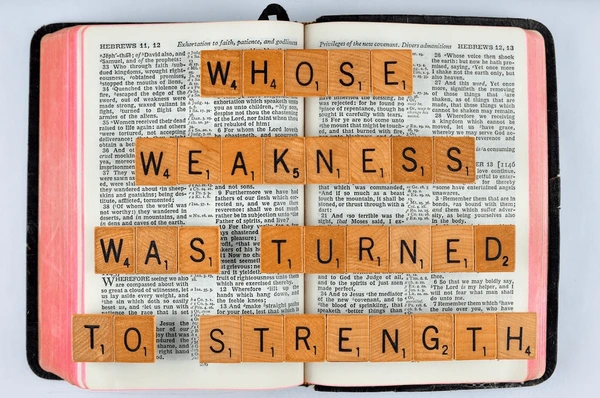3rd Sunday of Lent 3 March
Readings: Exod. 20. 1-17; 1 Cor. 1. 18-25; Jn. 2. 13-22
Theme: The Weakness of God
When we profess our creed as the transitional point between the liturgy of the Word and the liturgy of the sacrament each week, we profess that, “We believe in one God, the Father, the Almighty”. So, today, I would like to focus on this question of the almighty nature of God by thinking about this, as St Paul invites us to do in our second reading today from First Corinthians, through the lens of “the weakness of God”. What does it mean to say, with St Paul, that God’s power in Christ is demonstrated by his weakness?
In a nutshell, if we want to follow the logic of St Paul in this what is a rather enigmatic interpretation of the nature of God, then we have to do so within his thinking about the cross. For St Paul, the cross is revealed as “foolishness to the Greeks/Gentiles” and for the Jews they demand signs/miracles that they do not recognize in the sign of the cross. So, what is Paul doing here in the context of his Greek and Jewish interlocutors?
It is important to know the location within which St Paul is speaking. He is in the Southern tip of Greece in the Peloponnesian peninsula in the ancient city of Corinth which was the administrative capital of the Roman province of Achaea during Paul’s time. In other words, it was a busy Roman trading city and a place of significance which had both a Greek population and Jewish immigrants who had made their home there. So, Paul in his Letter to the Corinthians is speaking to two different groups. The Jews who followed the Law, the Torah codified in the Ten Commandments, as we heard in our first reading from the Book of Exodus and the Greeks who were influenced by different schools of philosophy popular at the time, such as Stoicism and Epicureanism.
For both of these groups the meaning of life was given through their respective traditions. For the Jews it was given through the Law and for the Greeks it was given through the wisdom of the philosophers and their different schools. So, into this context comes St Paul preaching the cross of Christ as the meaning of life. You can imagine how that must have gone down!
Now Jesus is not condemning the Law given to Moses. The Ten Commandments revealed to Moses on Mount Sinai are equally important for both Jews and Christians today. They form the basis in fact of our moral codes in many secular countries. However, what Jesus is condemning about the Law comes out clearly in our Gospel for today. Here Jesus is condemning the abuse of the Law that had happened in early Judaism which instrumentalized the Law to maintain the power and wealth of the religious authorities. The very Temple, Herod’s Temple, had become a “market” for buying and selling salvation. It had become corrupted as the Law was now employed by the Jewish religious leaders to profit from the Roman occupation by extorting money from the poor, so that they could have a clear conscience with God. Jesus is full of righteous anger here and overturns the tables because he sees the corruption of the Mosaic Law that was happening before his very eyes. As St John puts it, “Stop turning my Father’s house into a market!” In other words, the Law had become a corrupted sign of salvation to the Jews and not what it was meant to be the freely given gift of God’s promise with his people Israel.
When we come to the Greeks it is not the Law, the Torah, which has become an obstacle to hearing the message of salvation through the cross but Greek philosophy or Sophia, worldly wisdom. The issue here is that the wisdom of the world, of the strong win and the weak loose, that the powerful gain and the disposed are left on the sidelines is overturned, just like the tables in the Temple, by the message of the cross. It is through the very acceptance of Jesus to enter into his passion and death that the wisdom of this world will be exposed as “foolishness” as St Paul speaks about it. In other words, God’s power in Jesus is demonstrated to the world as weakness, the weakness of the cross. This is the only sign that will be given to the Jews and only wisdom that will be revealed to the Greeks. The cross undermines the sign-seeking corruption of the Torah by the Jewish establishment and the desire of the Greeks to know salvation as a special kind of worldly wisdom.
In the end the cross is God’s way of revealing to both the Jews and the Greeks that the meaning of life, the way of salvation is only to be found in love. The cross is weak, because the power of love is weak in worldly terms. It does not play the game of life to achieve its own selfish ends, but rather it plays the long game which is God’s engagement with the world through the incarnation of his Son. Through this coming to us, God reveals how life is to be lived. He embodies the Torah in his own very flesh as the way of salvation. It is a self-sacrificial life oriented towards God the Father at the service of others. This is the wisdom of heaven come down to earth. It appears like foolishness to the kind of mindset which only plays the short game of personal profit and ease. Yet, “for those who are being saved it is the power of God”.
In the name of the Father and of the Son and of the Holy Spirit. Amen.

